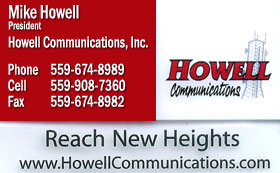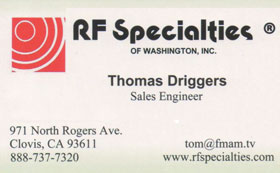Get Certified – Stand Out – Here’s How
Certified Television Operator (CTO) and Certified Radio Operator (CRO)
These two certifications are targeted to the entry-level, non-technical pool of applicants filling board operator and master control positions in today’s radio and television marketplace and include the opportunity to be tested and certified. The exam consists of 50 multiple choice questions. It is closed book and you are allotted one hour. Passing score is 90%.
Certified Broadcast Technologist (CBT)
This exam includes AM/FM or TV questions. Content of these questions will consist of electronic fundamentals, FCC rules pertaining to operating tolerances and safety. The exam is 50 multiple choice questions. It is open book and you are allotted three hours to take the exam. Passing score is 70%.
Certified Broadcast Technologist (CBT)
If you hold a valid FCC Amateur Extra Class license or a valid General Radiotelephone license and have two continuous years or three out of the last five years work experience in broadcast engineering or a related technology you can apply for the CBT certification without taking the exam. Please contact the national office for more information.
Certified Broadcast Networking Technologist (CBNT)
This certification demonstrates a basic familiarity with networking hardware as utilized in business and audio/video applications in broadcast facilities. The exam consists of questions on network topologies and layouts, common networkprotocols, wiring standards and practices, maintenance, troubleshooting and connectivity issues and challenges unique to broadcast-based networks. The exam is 50 multiple choice questions. It is open book and you are allotted three hours to take the exam. Passing score is 70%.
5-Year Certifications
Certified Audio Engineer (CEA), Certified Video Engineer (CEV), Certified Broadcast Radio Engineer (CBRE) and Certified Broadcast Television Engineer (CBTE)
These certifications are based on the years of experience you have in the field of broadcast engineering or related technology. You may substitute the years of experience to supplement the 5 year requirement (see acceptable substitutions below). This exam consists of questions regarding safety, problems, operation practices and theory. The exam is 50 multiple choice questions. It is open book and you are allotted three hours to take the exam. Passing score is 70%.
10-Year Certifications
Certified Senior Radio Engineer (CSRE) and Certified Senior Television Engineer (CSTE)
These two certifications are based on years of experience you have in the field of broadcast engineering or related technology.You may substitute the years of experience to supplement the 10 year requirement (see acceptable substitutions below). The exam is 50 multiple choice questions. It is open book. There is an essay portion associated with the senior exams. You will be given a choice of three essays. The essay is closed book. You are allotted three hours to take the exam. Passing score is a combined score of 84%.
For the 5-year or 10-year certifications you may substitute the years of experience by holding a state registered Professional Engineer’s license (4 years), a Bachelor Degree (4 years), an Associate Degree (2 years) or years of related accredited education can be substituted, year for year (up to 4 years).
20-Year Certification
Certified Professional Broadcast Engineer (CPBE)
This certification requires 20 years of professional broadcast engineering or related technologies experience in radio and/or television. Educational credits will not be counted towards the 20 years. There isn’t an exam associated with this certification, but the applicant must be certified on the Senior (10-year) level in order to apply for the CPBE. To apply you must fill out the application and include three letters of reference. Two must be from a Certified Professional Broadcast Engineer, Certified Senior Broadcast Engineer or state Registered Professional Engineer and at least one other letter of reference must be from a person who has supervised your work. However, if he/she is certified at one of the above-mentioned levels, that reference will be counted as two letters. In addition,you must submit a resume and a statement showing why you believe your professional experience, educational background and training qualifies you for certification. Your application will then go for review to your SBE Local Chapter Certification Chairman and then to the National Certification Committee.
Specialist Certifications
Certified 8-VSB Specialist (8-VSB), Certified AM Directional Specialist (AMD) and Certified Digital Radio Broadcast Specialist (DRB)
These certifications were created by the National Certification Committee to establish a benchmark of individual strengths. In order to apply for the Specialist exams you must first be certified on the 5-year, 10-year or 20-year level. The exam is 50 multiple choice questions. It is open book. You will be given one essay. The essay is closed book. You are allotted three hours to take the exam. Passing score is a combined score of 84%. Upon passing, your Specialist certification will be linked to the expiration of your host certification. All SBE certifications are valid for a period of five years. At which time you will need to recertify by professional credits. These credits will be valid from the 5-year period of your certification. Credits can be obtained by continuing your education, working in the broadcasting field, attending seminars, SBE meetings, active membership in SBE or other national technical broadcasting societies.To apply for any of theses certifications, please fill out an application from SBE’s website at www.sbe.org or you may call the National office to request an application at (317) 846-9000. Exams are given year-round at your local chapter during exam sessions. If you have any questions, please contact: Megan Clappe at mclappe@sbe.org.


